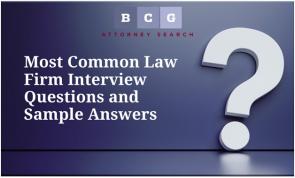SUMMARY:
In this comprehensive guide, legal professionals are equipped with essential strategies for enhancing client communication, ethical practices, and managing expectations to foster lasting relationships. This article delves into the importance of personalized services, confidentiality, proactive legal advising, crisis management, and efficient legal project management as foundational pillars for building trust and ensuring client satisfaction. By emphasizing the significance of these practices in not only attracting but retaining business, the guide serves as an invaluable resource for attorneys aiming to excel in their careers and stand out in the competitive legal market, making it a must-read for those committed to delivering exceptional service and achieving professional success.
In the ever-evolving legal landscape, attorneys are increasingly recognizing the importance of not just outstanding legal expertise but also exceptional client management skills. Good client management is only part of the picture—Mastering Your Law Firm Exit: Essential Strategies for Attorneys on the Move explains how to manage the full departure process. Effective Client Management for Attorneys: Building Relationships and Retaining Business is not just a matter of professional practice but the cornerstone of a thriving legal career. This comprehensive guide delves into the core of building lasting relationships with clients, showcasing the essential skills that not only attract but also retain business in a competitive market. The same principles of trust and relationship-building define BCG Attorney Search’s commitment to its candidates.
- For a complementary approach that explores enhancing client management at every stage—from prospect to loyal client—see enhancing client management across the client lifecycle
Understanding Client Communication
The foundation of any strong attorney-client relationship is effective communication. Clear, consistent, and transparent interactions can build trust, set realistic expectations, and ensure that clients feel valued and understood. Here's how attorneys can master this skill:
To complement your client management tactics, explore how law firms can excel at turning prospects into loyal clients in this in-depth guide—because retaining business starts from the first impression.
Building on communication and trust, mastering core skills that strengthen attorney-client relationships can significantly elevate client satisfaction.
Regular Updates: Keep clients informed about their case's progress with regular, scheduled updates. This proactive approach prevents misunderstandings and builds trust. Nowhere is this balance more delicate than in IP—The Future of Patent Attorneys in an AI-Driven Legal Market explains how patent attorneys can maintain strong client trust while adapting to AI.
Active Listening: Paying close attention to what clients say (and what they don't) can uncover underlying concerns and expectations, allowing for more personalized and satisfactory legal solutions.
Clear Language: Legal jargon can be confusing. Explaining complex legal concepts in simple terms ensures clients understand their situation and options.
- From Prospects to Loyal Clients: How Law Firms Can Enhance Their Client Management
- These 8 Tips Will Make New Attorneys More Effective Communicators
- The Art of Listening: Why Lawyers Must Listen to Their Clients
- Client Retention 101: Tips and Strategies for Law Firm Client Management
- The Science of Attorney Loyalty: What Really Drives Career Satisfaction and Long-Term Success
- How to Develop Business as a Lawyer: Top Ways for Any Attorney to Generate a Huge Book of Business
- How to Achieve the Benefits of Practice Management
- Understanding Work Values and Problem Resolution for Lawyers: A Guide to Improving Attraction and Retention
- How to Get Ahead as a Lawyer: The Importance of Being Organized
Ethical Considerations in Client Management
Ethics are the backbone of the legal profession. In client management, ethical practice is crucial for building trust and credibility. Attorneys must navigate confidentiality issues, conflict of interest, and maintain professional integrity to foster a secure and trusting relationship with their clients. This ethical foundation not only enhances the attorney-client relationship but also positions the attorney as a reputable and reliable professional in the legal community.
For more on the nuances and expectations of the attorney-client bond, see the dynamics of the client-lawyer relationship.
Managing Client Expectations
Setting and managing expectations is critical for client satisfaction. Unrealistic expectations can lead to disappointment, frustration, and damaged relationships. Large firms tend to prioritize corporate clients over consumers—learn why in Why Most Large Law Firms Don’t Have Consumer-Facing Practice Areas. Here are strategies to effectively manage client expectations:
- An effective complement to individual client management is marketing through practice groups—this piece shows how structured teamwork improves visibility and client trust.
Transparent Communication: From the outset, discuss the possible outcomes, timelines, and costs associated with the case.
Regular Reassessments: As the case progresses, reassess and adjust expectations based on new developments.
Honesty: Always be honest about what can be realistically achieved. It's better to underpromise and overdeliver.
Another angle on retaining clients is by continuously growing relationships—learn how via building a strong book of business through client development. Strong marketing isn’t only outward-facing; The Kick-Ass Marketing Secret shows how attorneys use marketing to win and retain business.
Enhancing Client Experience
To differentiate themselves in a crowded market, attorneys must focus on enhancing the client experience. Personalized services, attention to detail, and responsiveness can transform a satisfactory service into an exceptional one. Incorporating client feedback into practice improvements demonstrates a commitment to excellence and client satisfaction. Organizational skills can directly improve client management efficiency, as explained in How to Get Ahead as a Lawyer: The Importance of Being Organized.
Personalization: Tailor your approach to meet the unique needs and preferences of each client.
Responsiveness: Timely responses to calls, emails, and concerns show clients that their case is a priority.
Feedback Loop: Implement a process for collecting and acting on client feedback to continuously improve the quality of your service.
Confidentiality and Privacy
In the digital age, the importance of confidentiality and privacy cannot be overstated. Clients entrust attorneys with sensitive information, expecting it to be protected. Employing robust data protection measures and maintaining strict confidentiality protocols reassures clients that their information is secure, enhancing trust and loyalty.
- Understanding common issues clients face with their attorneys—like disorganized communication—can help you address pain points before they escalate.
Attorney-Client Collaboration
Viewing the attorney-client relationship as a collaborative partnership can lead to more effective and satisfying legal outcomes. This approach encourages open communication, mutual respect, and shared decision-making, ensuring that clients are actively engaged and invested in their legal journey.
- High-performing teams enhance the client experience—see retaining top legal talent for client continuity to ensure the people behind your client service stay motivated.
For attorneys balancing relationship management with long-term growth, Top Strategies for Building a Book of Business and Staying Motivated highlights how to stay disciplined in outreach and follow-up.
Proactive Legal Advising
Proactive legal advising means anticipating potential legal issues before they arise and advising clients accordingly. This approach not only protects clients but also demonstrates an attorney's value and dedication to their client's well-being. Here's how attorneys can adopt a proactive stance:
Stay Informed: Keep up-to-date with changes in the law that could affect clients and inform them of any necessary preemptive actions.
Risk Management: Regularly review client files to identify potential risks and propose strategies to mitigate them.
Educational Outreach: Provide clients with newsletters, workshops, or webinars on relevant legal issues, reinforcing your role as a trusted advisor.
Proactive legal advising strengthens the attorney-client relationship by establishing the attorney as an indispensable asset to the client's legal and business strategy.
Combining client management with business development? These strategies for winning and retaining client business offer actionable insight.
Crisis Management for Clients
Attorneys often need to act as crisis managers, providing calm, strategic advice during tumultuous times. Effective crisis management involves quick thinking, thorough planning, and clear communication. Here are key strategies:
Rapid Response: Develop a plan for quickly addressing crises, ensuring that you can provide immediate support to clients when they need it most.
Strategic Advice: Offer clear, actionable advice that focuses on both immediate resolution and long-term consequences.
Communication: Keep lines of communication open, updating clients regularly about the crisis management process and what steps are being taken.
Being a reliable supporter during a crisis can significantly enhance client loyalty and retention, showing that you're not just a legal advisor but a dedicated partner in their success.
To understand how client retention feeds into performance metrics like profitability and origination, explore key performance indicators like client retention and profitability.
Legal Project Management
Effective legal project management is essential for delivering client services efficiently and within budget. It involves planning, executing, and monitoring legal work to achieve the desired outcome. Attorneys can enhance their project management skills by:
Setting Clear Objectives: Define what success looks like for the client and develop a plan to achieve it.
Resource Allocation: Ensure that the right resources (time, talent, technology) are in place to effectively handle the project.
Communication Plan: Develop a communication plan that keeps the client informed about progress and any adjustments to the strategy or timeline.
Implementing strong project management practices ensures that legal services are delivered in a way that meets or exceeds client expectations, further solidifying the attorney-client relationship.
For a broader firm-level view, consider how leveraging practice management to support client success aligns client satisfaction with firm profitability.
Conclusion
Effective client management for attorneys is not just about providing legal solutions; it's about building and maintaining strong, trusting relationships with clients. Through clear communication, ethical practice, managing expectations, and enhancing client experience, attorneys can not only attract but also retain business in a competitive marketplace. Being proactive, offering strategic crisis management, and employing effective legal project management are also key to delivering exceptional service that clients value and remember.
Staying organized is key to client satisfaction—learn more about organizational habits that enhance client service.
Attorneys who master these skills will find themselves not just successful in their current roles but also in high demand in the broader legal market. The ability to effectively manage and nurture client relationships is a powerful differentiator
If you're considering a transition but want to preserve client trust, this guide on planning your exit while maintaining client relationships is invaluable.
1. How can attorneys improve client retention through effective communication?
Answer: Attorneys can improve client retention by maintaining clear, consistent, and transparent communication. Regular updates, active listening, and explaining complex legal concepts in simple terms help clients feel valued and informed. Strong communication not only strengthens relationships but also positions attorneys as trusted advisors, which can enhance career growth and long-term client loyalty. Explore BCG Attorney Search to discover insights on managing client relationships effectively.2. Why is ethical client management crucial for law firm hiring and career success?
Answer: Ethical client management underpins trust and credibility, which are essential for both attracting and retaining clients. Attorneys who prioritize confidentiality, avoid conflicts of interest, and demonstrate professional integrity often stand out in law firm hiring and lateral move opportunities. Building a reputation for ethical excellence can accelerate career advancement and increase opportunities for partner promotion.3. What strategies help attorneys set and manage client expectations?
Answer: Attorneys can manage client expectations by being transparent about case outcomes, timelines, and costs from the outset. Regular reassessments and honest communication throughout a matter prevent misunderstandings and build client trust. These practices not only enhance client satisfaction but also strengthen an attorney’s book of business, which is critical for career growth and lateral moves.4. Can proactive legal advising enhance an attorney’s career growth?
Answer: Yes, proactive legal advising demonstrates foresight and commitment to client success, which can differentiate attorneys in a competitive market. Anticipating client needs, offering solutions early, and guiding strategic decisions fosters loyalty and long-term business relationships. Attorneys who excel at proactive advising are more likely to be recognized for partner promotions and high-value lateral opportunities.5. How do personalized services impact attorney job searches and client retention?
Answer: Personalized services show clients that attorneys understand their unique needs, which strengthens relationships and drives repeat business. For attorneys seeking new opportunities, a strong record of personalized client service can be a key differentiator in law firm hiring decisions. Leveraging these skills can support career advancement and enhance your presence in the legal market—BCG Attorney Search provides guidance for attorneys aiming to build both client loyalty and professional success.1. How can attorneys improve client retention through effective communication?
Answer: Attorneys can boost client retention by maintaining clear, consistent, and transparent communication. Regular updates, active listening, and simplifying legal jargon help clients feel informed and valued. Strong communication not only strengthens relationships but also enhances your reputation in law firm hiring and lateral move opportunities. Explore BCG Attorney Search for tips on building lasting client relationships while advancing your career.2. Why is ethical client management critical for career growth in law firms?
Answer: Ethical client management establishes trust and credibility, which are essential for long-term career growth. Upholding confidentiality, avoiding conflicts of interest, and maintaining professional integrity set attorneys apart in both law firm hiring and lateral moves. Ethical practices also attract high-value clients, helping lawyers develop a robust book of business.3. What strategies help lawyers manage client expectations and retain business?
Answer: Lawyers can manage expectations by clearly discussing outcomes, timelines, and costs upfront and reassessing them as cases evolve. Honesty and transparency prevent misunderstandings and foster loyalty. Mastering these strategies supports both attorney job search success and long-term career advancement, making you a more attractive candidate to law firms.4. Can building a strong book of business enhance lateral move opportunities?
Answer: Yes, a strong book of business significantly enhances lateral move opportunities. Firms value attorneys who can bring clients and generate revenue, making client retention and management key factors in law firm hiring. BCG Attorney Search provides insights on leveraging your client portfolio for strategic career transitions.5. Should attorneys invest in personalized client service to stand out in BigLaw vs. boutique firms?
Answer: Absolutely. Personalized client service differentiates attorneys in competitive markets, whether in BigLaw or boutique firms. Understanding each client’s unique needs and providing tailored solutions strengthens relationships and retention, boosting your career growth. Use BCG Attorney Search to explore best practices for client management and relevant openings.g; The Kick-Ass Marketing Secret




